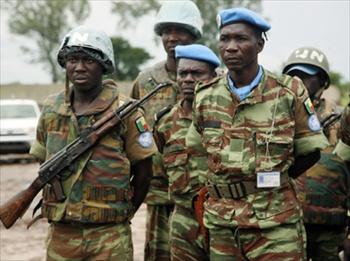The State of Higher Education in Somalia: privatisation, rapid growth and the need for regulation – By Abdi Aynte

 Higher education institutions have proliferated in Somalia during two decades of civil war. More than 50,000 students are attending some 50 universities across the country. This exponential growth has happened largely without government oversight and quality control. Research and publications capacity is almost nonexistent. Teaching capacity is low. Universities lack adequate facilities such as science and computer labs. Most rely almost exclusively on student fees to fund their operations. If the next generation of Somali graduates are to contribute towards the reconstruction of the country and compete with returning members of the diaspora in the job market, the quality of service provided by higher education institutions must improve.
Higher education institutions have proliferated in Somalia during two decades of civil war. More than 50,000 students are attending some 50 universities across the country. This exponential growth has happened largely without government oversight and quality control. Research and publications capacity is almost nonexistent. Teaching capacity is low. Universities lack adequate facilities such as science and computer labs. Most rely almost exclusively on student fees to fund their operations. If the next generation of Somali graduates are to contribute towards the reconstruction of the country and compete with returning members of the diaspora in the job market, the quality of service provided by higher education institutions must improve.
Starting from scratch
Shortly before the collapse of the state in 1991, Somalia had just one university located in Mogadishu with approximately 4000 students enrolled. In the absence of central government, local communities, Islamic non-government organisations, and the Somali diaspora have spearheaded efforts to develop the higher education sector, even as conflict raged through the country. Between 2004 and 2012 alone, 34 higher education institutions were established. There are now at least a dozen universities in Mogadishu and half a dozen in Hargeisa, the capital of the autonomous region of Somaliland.
Crippled by pitiful budgets, severely limited capacity, and an unenviable list of priorities, government institutions have had little choice but to allow the private sector to dominate the provision of education. While universities and colleges may register with regional governments when they first open, there is very little further interaction with authorities. Many institutions are governed by self-established local education associations. Others claim to be entirely independent of any oversight.
There are now growing concerns that without regulation the quality of education received at Somalia’s higher education institutions may fall far short of international standards. Somalia’s graduates may, as a result, be ill-prepared to enter employment with qualifications that are unlikely to be recognized beyond the country’s borders. An alarming number of education institutions exist without a library, without computer or printing facilities, and without scientific laboratories. Furthermore, there is a worrying concentration on specific disciplines with approximately one third of all students enrolled in information technology (IT) and business administration courses. As the country enters a new phase of post-conflict reconstruction, there is an increasing need for qualified doctors, lawyers, engineers, and teachers.
Regional disparities
The relative peace and stability that has characterized the self-declared Republic of Somaliland, in the north-west of Somalia, since 1991 has unsurprisingly meant that the level of reconstruction of the education sector in this region is noticeably higher than other regions. In the north-eastern region of Somalia, the semi-autonomous Puntland State has also made significant progress in rebuilding the education sector since it was formed in 1998.
Universities in Somaliland and Puntland are more likely to have been established with the support of the diaspora and international aid organizations. In south central Somalia, where most western aid organizations had very little access in the past two decades, universities are more likely to have been established with the support of Islamic aid agencies that were operating throughout periods of conflict.
Universities in Puntland and south central Somalia also have proportionately more lecturing staff with doctorate degrees than in Somaliland. Reasons for this are unclear though it may be related to the number of non-Somali lecturing staff in Somaliland who are more likely to search for teaching opportunities in the region having completed a Masters degree.
Developing the higher education sector in Somalia
There is a growing need for regulation of the higher education sector in Somalia. The federal government and regional administrations must develop educational policies that address quality issues and align national priorities with educational policies if graduates are to enter gainful employment and contribute towards the reconstruction of the country. Regulation for the sake of regulation will not improve the service provided by higher education institutions. Government institutions will likely require support as they engage further with universities and colleges if they are to address growing concerns about the quality of service provided. The donor community should work closely with the federal and regional governments to improve the capacity of government ministries involved in education as well as education institutions themselves.
The growth of the higher education sector in Somalia in the past two decades, despite widespread conflict, is remarkable. Efforts should now be diverted from expanding the number of institutions operating in the country to improving the quality of service they provide.
The Heritage Institute for Policy Studies, Somalia’s first independent think-tank, has carried out the most comprehensive survey of higher education institutions in the country’s history. A total of 44 higher education institutions in all regions of Somalia, including Somaliland, were surveyed for the project. The full report can be downloaded here. For more information contact [email protected].





